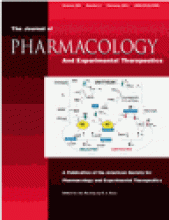Abstract
Trimellitic anhydride (TMA) is one of many low molecular weight compounds known to cause occupational asthma. In our previous studies the TMA-induced allergic response in guinea pigs was attenuated by depletion of complement. Specifically, the leakage of red blood cells and infiltration of inflammatory cells into the lung after TMA challenge was significantly reduced. Thus, we hypothesize that in the presence of specific antibody, TMA activates the complement system and complement activation products play a role in mediating inflammatory cell infiltration into the lung and lung hemorrhage. Guinea pigs were sensitized by intradermal injection of TMA in corn oil. An increase in the complement activation product C3a was detected in bronchoalveolar lavage, but not in plasma, of both sensitized and nonsensitized guinea pigs after intratracheal challenge with TMA conjugated to GPSA (TMA-GPSA). In vitro experiments demonstrated that TMA-GPSA caused complement activation by antibody-dependent as well as antibody-independent pathways. In sensitized animals, TMA-GPSA challenge caused significant increases in eosinophils, neutrophils, and macrophages in lung, along with increases in red blood cells and protein in the airspace. The infiltration of eosinophils was unique in that the magnitude of the GPSA/TMA-GPSA effect was significantly different between nonsensitized and sensitized animals. C3a concentrations in BAL correlated with all measures of cell infiltration in sensitized animals, but not in nonsensitized animals. These data indicate that complement activation in the absence of antibody is not sufficient for the complete allergic response to occur. Both sensitization and the complement system are required for TMA-induced eosinophilia.
Footnotes
- Received June 22, 2000.
- Accepted October 29, 2000.
-
Send reprint requests to: Dr. J. F. Regal, Department of Pharmacology, University of Minnesota, Duluth, 10 University Dr., Duluth, MN 55812-2487. E-mail: jregal{at}d.umn.edu
-
This research was supported by the National Institute of Environmental Health Sciences, National Institutes of Health, Grant NIH ES 07406.
- The American Society for Pharmacology and Experimental Therapeutics
JPET articles become freely available 12 months after publication, and remain freely available for 5 years.Non-open access articles that fall outside this five year window are available only to institutional subscribers and current ASPET members, or through the article purchase feature at the bottom of the page.
|






